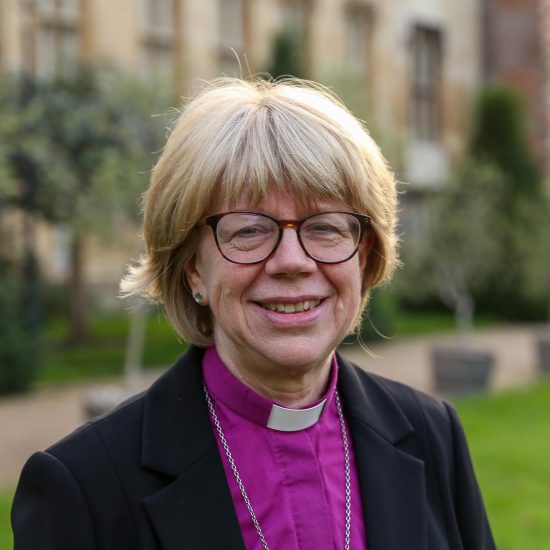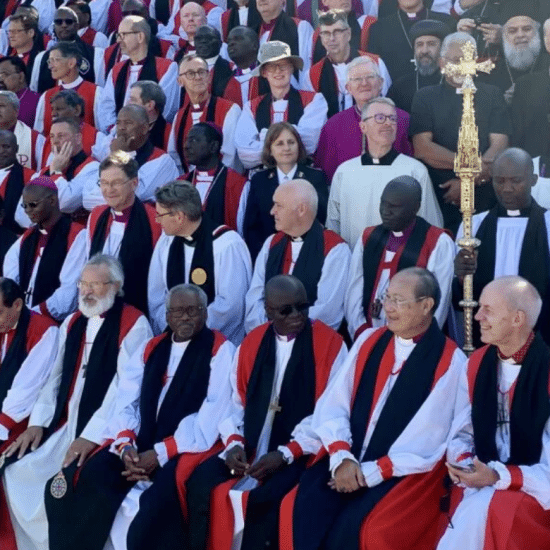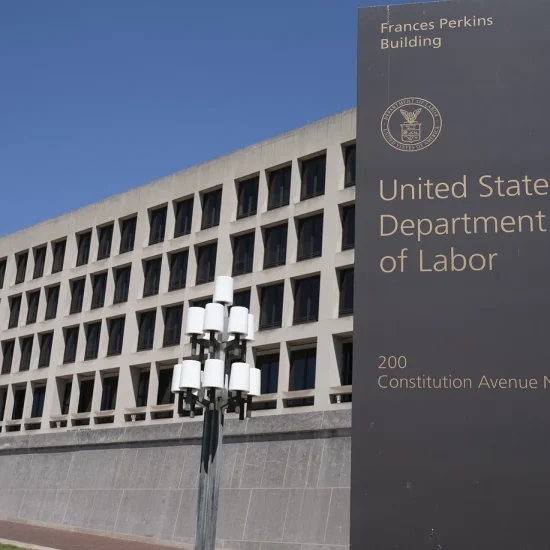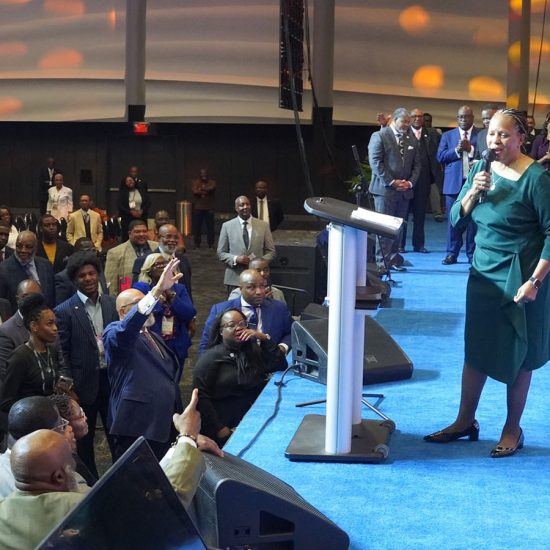
(RNS) — With a total of six decades of ministry between them, the Revs. Liz Ríos and Liz Mosbo VerHage were not surprised to learn that the vast majority of women ministers have faced misogyny.
But their new report, “Empowering Resilient Women Ministers: Unveiling the Fuel to Serve Amidst Misogyny,” revealed what helped keep their colleagues in the ministry. Across ages, races, and denominations, women cited pursuing the call they believe they’ve received from God, supportive networks, and perseverance as top contributors to their success.

Cover art for “Empowering Resilient Women Ministers: Unveiling the Fuel to Serve Amidst Misogyny.” (Courtesy image)
The research by Ríos and VerHage, both ministers and scholars, revealed that 87% of the 610 women they surveyed said they experienced misogyny, defined as “discrimination, prejudice, objectification, or violence based on your gender,” in their ministry context. Forty-seven percent said they experience such discrimination regularly.
“Some of the women that have made space for them, that took their hand and said, ‘Hey, I’m going to invest in you, I’m going to show you the ropes so that you don’t have to go through some things’ … has also helped them in their resiliency,” said Ríos, a former Assemblies of God minister now affiliated with the Christian Church (Disciples of Christ) who is the founder of The Passion Center, an online faith community and training center.
The researchers plan to discuss their findings in an online event on Wednesday (Sept. 3).
The report, funded by Louisville Institute, indicated that the kinds of discrimination women face in ministry include gender bias, limited opportunities for leadership, and adverse expectations related to work/family balance. Some respondents said that, as a result, they formed their own ministries when they didn’t feel accepted in their own denominations and communities.
“I had to create a new table and plant my own church because no existing system would allow me to lead at the highest level,” one said, according to the report.
VerHage, who is ordained in the Evangelical Covenant Church and serves as senior pastor of the nondenominational LaSalle Street Church in Chicago, said women depend on themselves and other women for encouragement to stick with their commitments to ministry.
“The ways that they most strongly persevered included finding other supportive women, either in mentorships or cohorts or community groups, and then also developing their own sense of passion and call,” VerHage said. “One thing that really surprised me was only 2% of women named that a male colleague had been helpful to them.’’
Their report’s executive summary noted that women of color faced both gender and racial inequities and “often also had a harder time leading in churches than they did in secular settings.”
The researchers said their personal experiences also reflect a pattern of women ministers independently pursuing their own paths when traditional ones were not available, or creating new spaces such as building conferences and small groups where women can learn from each other as they seek ministry leadership roles. Ríos, who is Afro-Puerto Rican, founded Passion2Plant, an egalitarian organization that supports people of color starting new churches. VerHage, who is white, started a women’s leadership conference in the Evangelical Covenant Church to discuss advocacy, justice, and the intersection of gender and race.
When Ríos and VerHage delved into their findings in focus groups and one-on-one interviews with a few dozen of the respondents, they learned more about the dynamics of support and barriers. Some women spoke of being left out of male-dominated spaces where ministry plans were discussed. Others spoke of competitive tensions among women ministers in the same age group as they sought limited roles, even as senior women were more helpful in supporting them in their careers than men.
The study noted role models can counterbalance isolation and lack of information women deal with in ministerial leadership, including helping determine how much they should get paid for an honorarium or how many hours they should be expected to work in a full-time job.
“We need direct and honest information and mentors who tell us exactly how to have the conversations — what to charge, what is the pay scale, how to rest and how to lead without burning out,” one respondent said, according to the report.
The most helpful mentors have certain traits — often being women of an older generation who have healed from some of the wounds of discrimination they’ve suffered — to help younger women advance, the research found. In contrast, though, Ríos said a regional minister recalled in a one-on-one interview “that it was another woman who told her that women should just be seen and not heard.”
The researchers noted that the study comes at a time when leadership roles for women are being questioned in U.S. politics and in religious circles, including by the Southern Baptist Convention, which has held votes two years in a row trying to bar churches with women pastors, with each vote just shy of achieving the required two-thirds majority for passage. And three years ago, Southern Baptists — the nation’s largest Protestant denomination and one that 4% of study respondents indicated they identified with — affirmed the expulsion of two churches that employed women pastors.
While mentoring and training were among the factors that helped build resilience among the women who were studied, many also cited self-care, like visiting a spa or attending a retreat, and spiritual disciplines, such as prayer and journaling, as means of addressing burnout and forging resistance.
Eighty percent of the women studied were between the ages of 25 and 44, and more than 70% were from the East or West coasts. The denominations they represented include the Evangelical Covenant Church, Assemblies of God, Christian Church (Disciples of Christ), Presbyterian Church (USA), and National Baptist Convention (USA). The majority were midcareer, with 57% serving five to 15 years, 25% serving fewer than five years, 16% in ministry 25 to 30 years, and 2% serving more than 30 years.
Their racial/ethnic breakdown was 47% white, 44% Black/African American, 6% Hispanic/Latina, and 3% Asian, Pacific Islander, Indigenous, or multiracial. They also represented a range of ministerial credentials — 39% ordained, 38% certified, and 23% licensed.
Ríos and VerHage said they hope their findings will lead to intentional efforts toward improving how church leaders relate to women ministers, and how they structure their churches and organizations. VerHage said examples of improvement could include men helping ensure women are in the room where decisions are made, and women having more gathering places to “affirm we’re walking a harder road.”
Ríos recalled another respondent whose words stuck with her: “She actually said that ‘If we don’t formalize structures, they will become patriarchal by default.’ You have to be intentional. If not, it’s just going to — by default — just be what it always has been.”
Among their recommendations, the scholars suggested churches and other religious organizations increase transparency about salaries and benefits, hire women to preach and teach, train men and white women about biases, and encourage teaching about the voices of women in the Bible.
They also hope their research leads to more studies and a book, as well as a “resilient women’s cohort” to teach some of the methods described in their findings, the researchers said. They noted there were limitations, including having limited Southern and Midwestern representation, narrow ethnic representation, and a subset of individual interviews that might not have fully reflected views across regions or denominations. Still, Ríos and VerHage said they could draw distinct conclusions from their research.
“The data and voices we heard from are clear — women are no longer waiting for permission but are already preaching, planting, leading, and shaping the future,” they wrote in the conclusion of the executive summary. “The real question is whether our institutions will recognize and honor that leadership, or continue to reinforce systems that silence it.”






